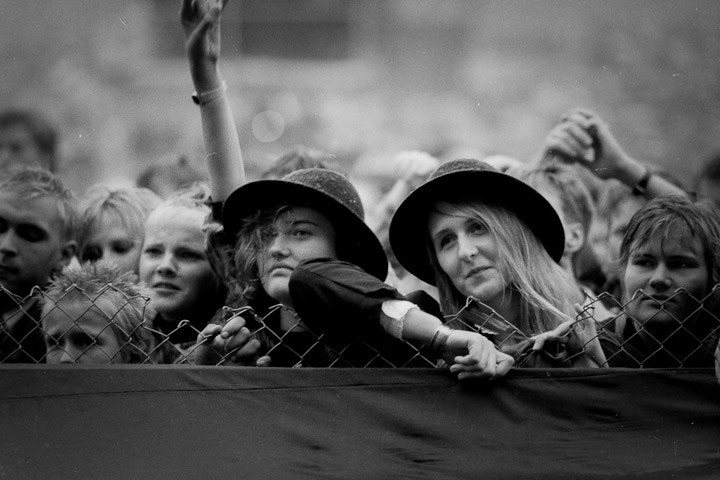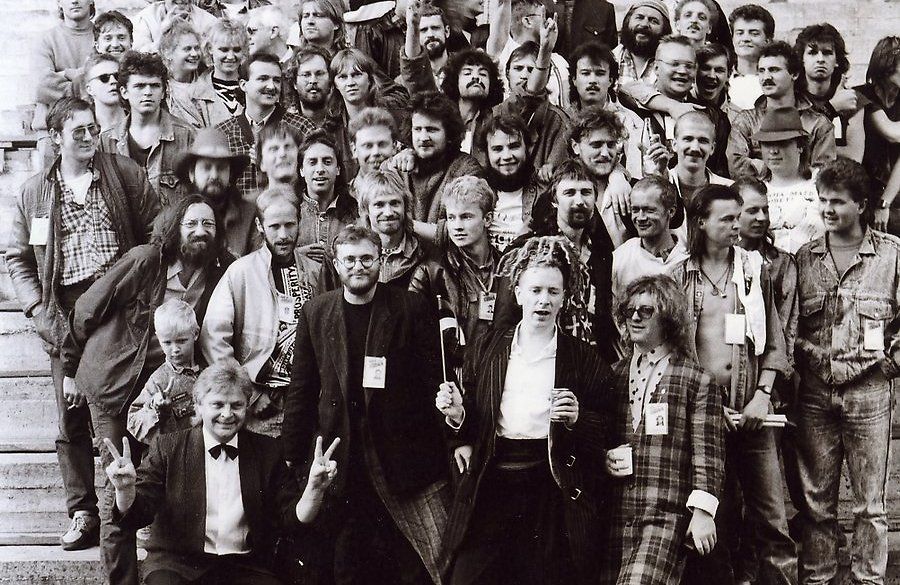Three years before the collapse of the Soviet Union, an extraordinary rock festival took place in Tallinn, Estonia. Known as Rock Summer, or Glasnost Rock in 1988, it marked the most international rock event ever held behind the Iron Curtain at the time.
Initiated by entrepreneur Jüri Makarov and fueled by the newly found sense of freedom sweeping the Baltic states, Rock Summer attracted over 150,000 people to the Tallinn Song Festival Grounds. The festival featured both famous international acts and prominent domestic artists. Headliners at the inaugural Rock Summer included Big Country, Public Image Ltd. and Steve Hackett.
In 1988, Estonia was still on its challenging path toward independence, making the festival far more than just an average rock concert. Held against a backdrop of the still unofficial Estonian national tricolour flags, the event carried a profound symbolic weight. The unique atmosphere resonated among the tens of thousands of attendees, reflecting the spirit of hope and defiance that permeated the gathering.
At that time, few could have imagined that Estonia would regain its independence just three years later. Yet, looking back at old footage and photos, the strength of national sentiment is unmistakable. The atmosphere, unlike that of a typical rock festival, was further emphasised by the location – the Tallinn Song Festival Grounds. This site holds deep significance for Estonians, as it hosts the Estonian Song Festival every five years, one of the largest choral events in the world, with a history dating back to 1869.

Inviting John Lydon
Although it may not seem remarkable by 2013 standards, one of the organisers’ most unexpected achievements in 1988 was securing a performance by John Lydon, also known as Johnny Rotten of the Sex Pistols. At the time, Lydon’s band Public Image Ltd., along with the Sex Pistols, was officially blacklisted by Soviet authorities. Yet, in a surprising turn of events, Kremlin officials largely turned a blind eye to the festival, allowing it to proceed without significant interference.
The organisers cleverly invited bands from outside the USSR at the last possible moment, a tactic designed to keep their “subversive plans” under the radar of Soviet officials. John Lydon was so moved by the day’s events and the overwhelming reaction from the 130,000-strong crowd that he now regards this performance as one of the most remarkable of his career.
Rock Summer continued to attract major artists over the years, including The Jesus and Mary Chain, Procol Harum, Status Quo, Iggy Pop, Simple Minds, M-People, EMF, East 17, and Apollo 440. However, by the summer of 1997, the festival came to an end. Growing competition from neighboring countries and overly ambitious budgets ultimately proved too much, marking the conclusion of this iconic event.
Inspiring hundreds of young Estonians
The significance of those early Rock Summers in the late 1980s and early 1990s is hard to overstate. These festivals inspired hundreds of young Estonians to form bands and organise other music events. Among those rebellious teenagers in the crowd during the memorable summer of 1988 were the future organisers of the contemporary Tallinn Music Week, a testament to the enduring influence of Rock Summer on Estonia’s music scene and cultural landscape.
Rock Summer not only captivated tens of thousands of music fans, but it also awakened something far more profound. It fostered a sense of liberation, freedom, and belonging at a time when these ideals were still out of reach for many. The festival became a symbol of hope, signaling that many good things were on the horizon for Estonia and its people.

